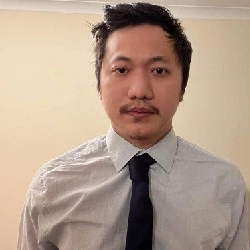
Olive Kyaw
University Hospitals Sussex NHS Foundation Trust, United KingdomPresentation Title:
Healing or Masking? A Review of Corticosteroid and PRP Injections for Rotator Cuff Tendinopathy
Abstract
Background:
Rotator cuff tendinopathy (RCT) is a highly prevalent cause of shoulder pain and dysfunction, particularly among middle-aged and older adults. Injection-based therapies are commonly employed in its management. Platelet-rich plasma (PRP) and corticosteroid (CS) injections have emerged as two widely used options, but their relative efficacy remains debated.
Objective:
To review and compare the effectiveness, safety, and practical considerations of PRP and CS injections for managing rotator cuff tendinopathy, based on current evidence.
Methods:
A narrative literature review was conducted by searching Ovid MEDLINE for randomized controlled trials, meta-analyses, and clinical studies published in the past 25 years. The focus was on evaluating treatment efficacy, durability of results, safety profiles, and practical recommendations for clinical management.
Results:
Evidence indicates CS injections provide rapid but short-term pain relief, while PRP injections may deliver longer-lasting functional improvements and pain reduction, with fewer adverse effects. Recent high-quality trials and meta-analyses support PRP’s role, particularly for chronic or refractory cases. However, heterogeneity in PRP preparation and delivery protocols remains a challenge for standardization.
Conclusion:
PRP injections appear to offer superior long-term outcomes over CS for RCT, despite higher costs and logistical considerations. A tailored approach considering patient characteristics and disease chronicity is recommended.
Biography
Mr. Olive Kyaw is a dedicated resident surgeon currently practising at the Royal Sussex County Hospital in the United Kingdom. He holds Membership of the Royal College of Surgeons (MRCS) from Glasgow and is passionately focused on advancing his career with the goal of entering the highly competitive orthopaedic training programme in the UK.
Mr. Kyaw has developed a strong and versatile clinical portfolio, demonstrating his commitment to both patient care and academic excellence. He has actively participated in multiple clinical audits and quality improvement projects, many of which have contributed to optimising patient outcomes and service delivery. A keen researcher, he is involved in authoring papers aimed at publication in peer-reviewed journals, showcasing his interest in evidence-based medicine and surgical innovation.
Beyond clinical practice, Mr. Kyaw is deeply invested in medical education. He serves as an honorary lecturer, teaching orthopaedic examination skills to medical students and junior trainees, and is regularly engaged in local teaching programmes and workshops.
With his blend of clinical expertise, research involvement, and passion for teaching, Mr. Kyaw continues to build a strong foundation for a future career in orthopaedic surgery, aspiring to make impactful contributions to the field.

